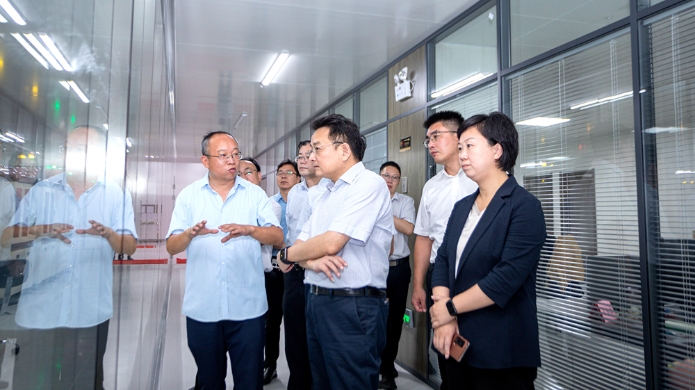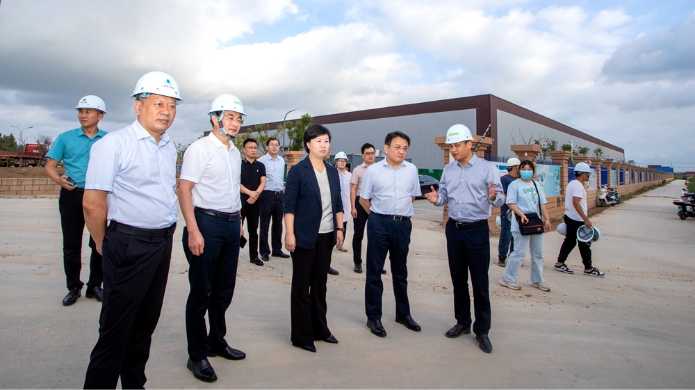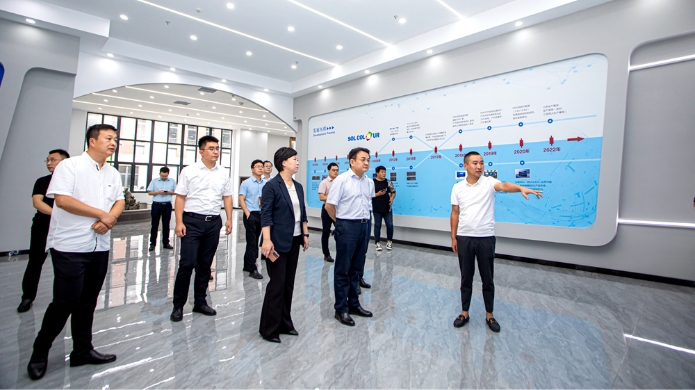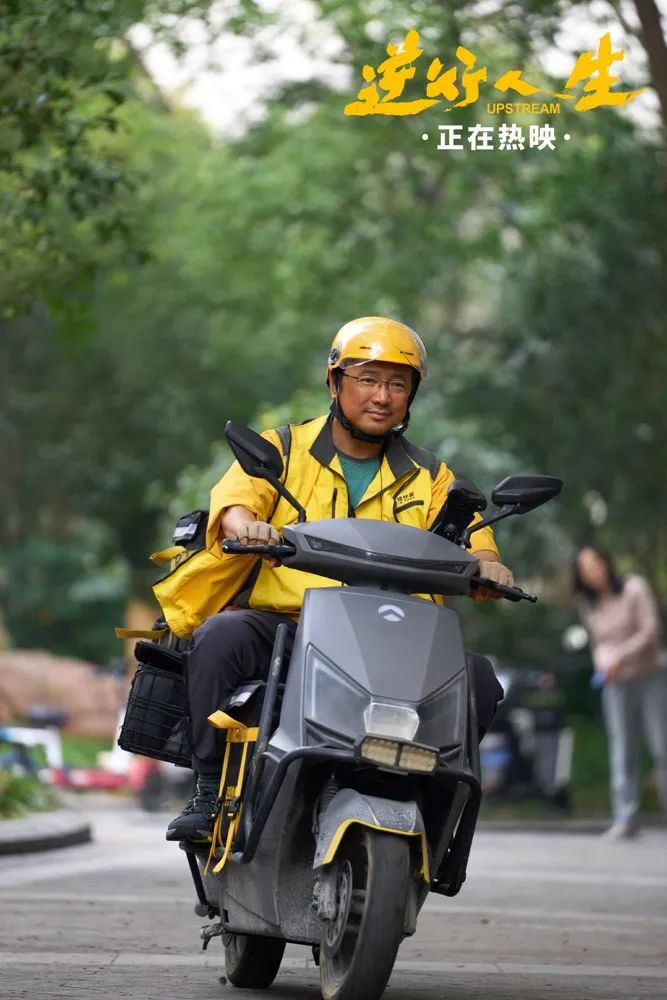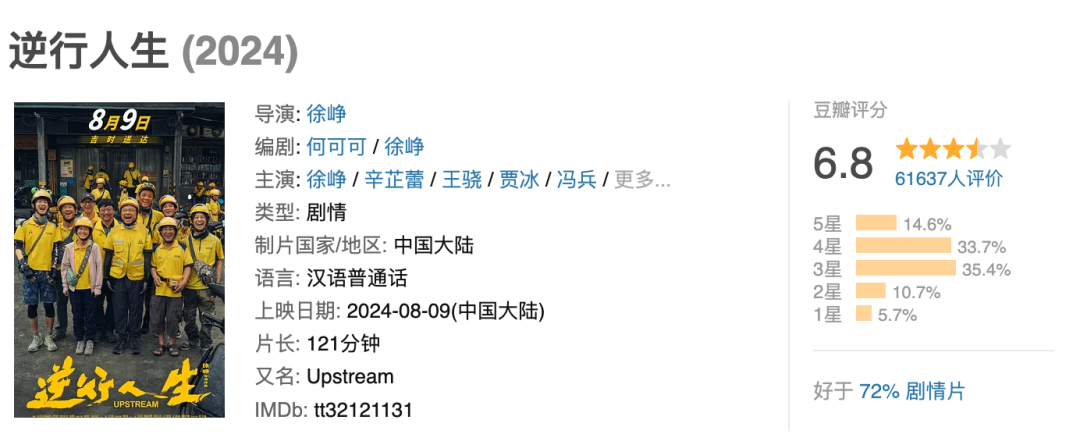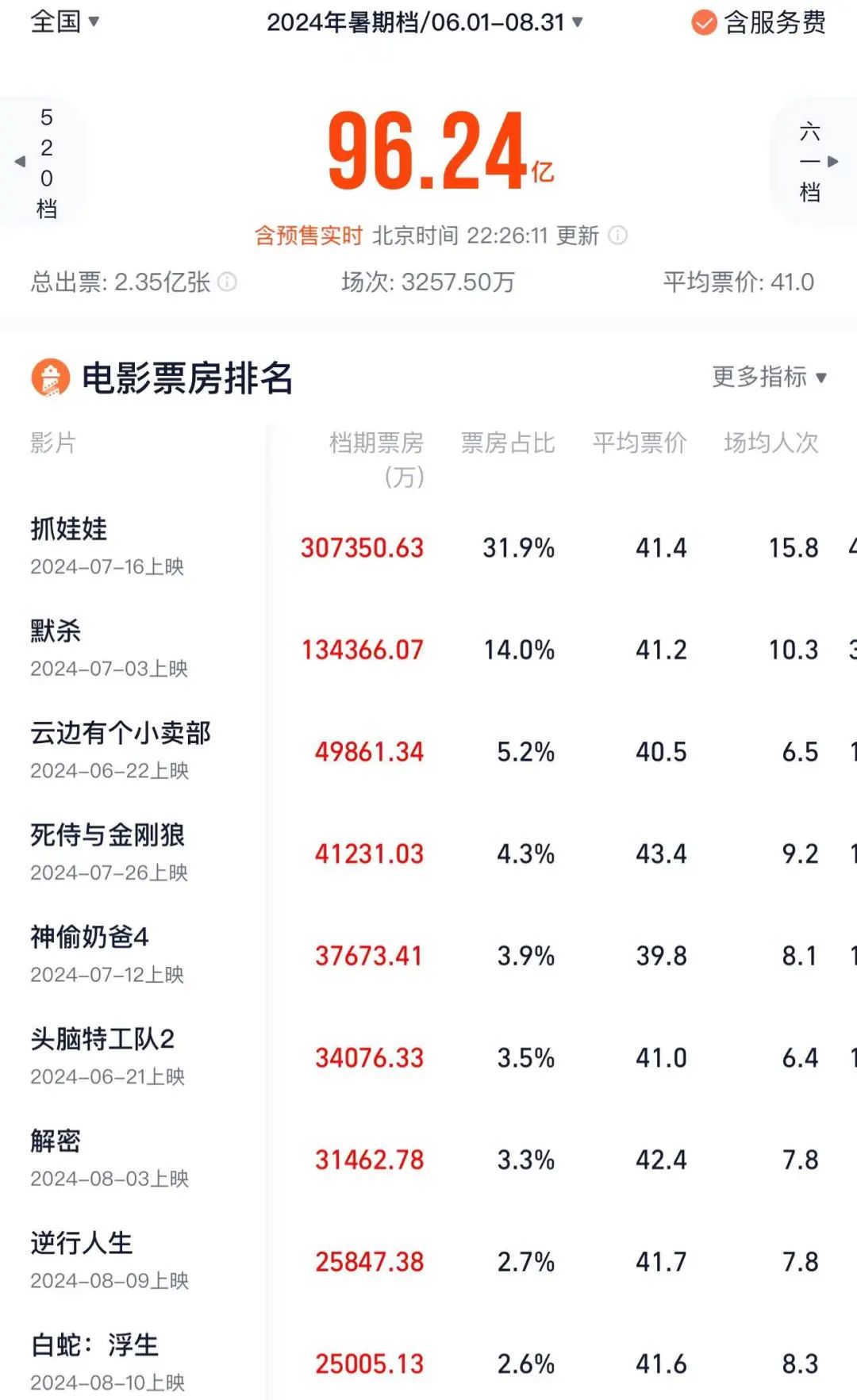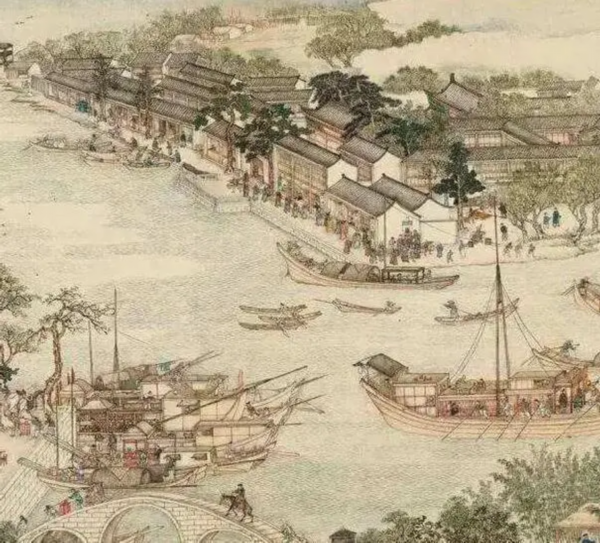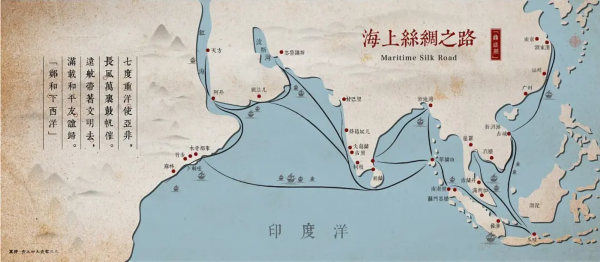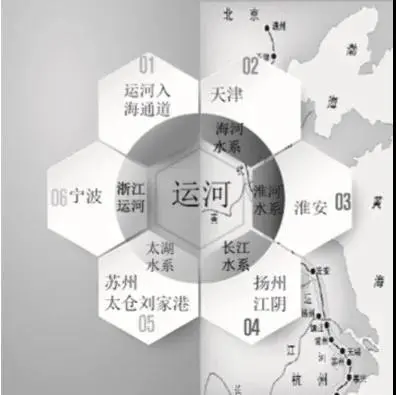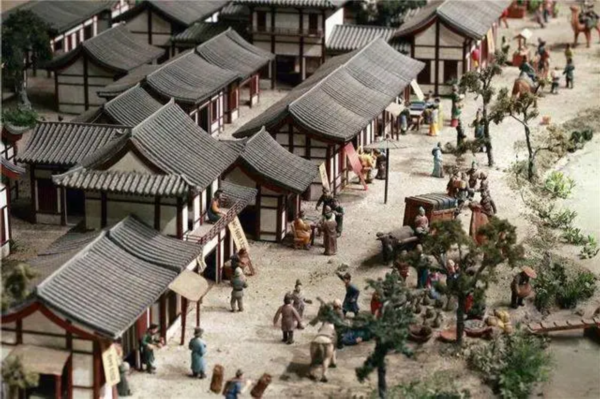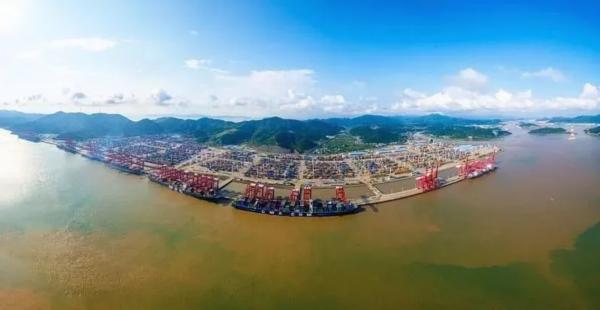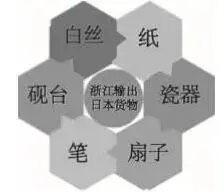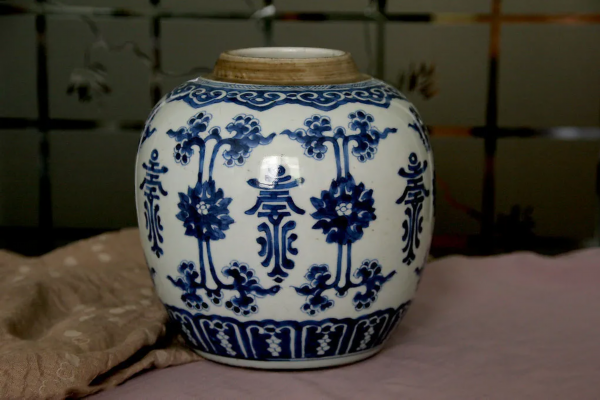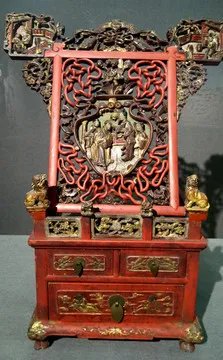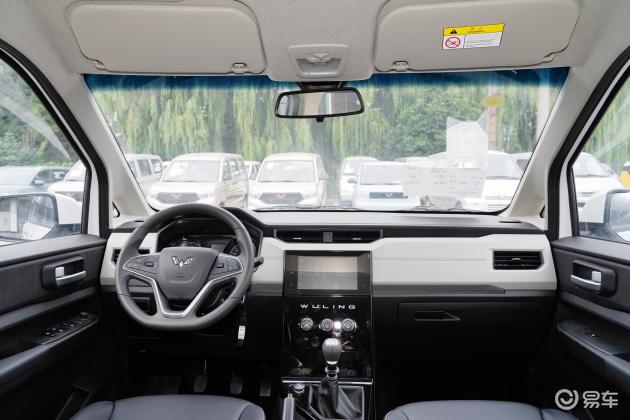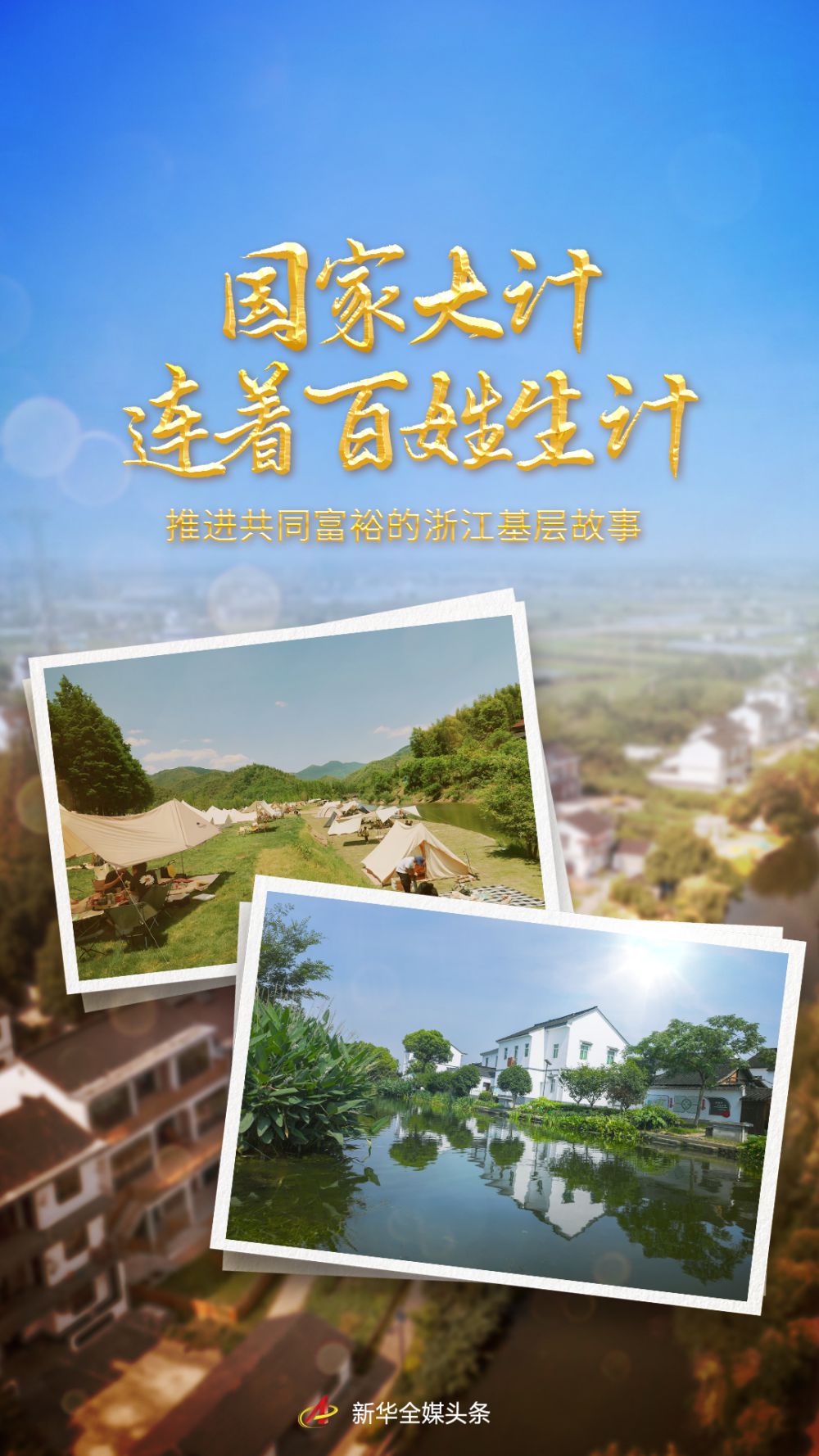
On June 10th, 2021, the Central Committee of the Communist Party of China and the State Council’s Opinions on Supporting Zhejiang’s High-quality Development and Building a Demonstration Zone for Common Prosperity was officially released, and the development goal of "two steps" was put forward: "By 2025, Zhejiang Province has made significant substantive progress in promoting high-quality development and building a demonstration zone for common prosperity" and "by 2035, Zhejiang Province has made greater achievements in high-quality development and basically achieved common prosperity".
By June, 2023, nearly half of the development target time of "the first step", what progress and landmark achievements have been made in the construction of Zhejiang Common Prosperity Demonstration Zone, and what people have experienced a deep sense of happiness and gain?
The fresh answer is at the grassroots level. From the fiery workshop of private enterprises, from the busy figure of people in the "workshop for common prosperity", from the dreams ignited by children in mountain villages, from the laughter floating in the cultural auditorium, from the natural comfort of camping, from the comfort brought by shaking hands, the rich connotation of common prosperity is vividly interpreted.
"Happy life is all about struggle." The broad masses of cadres and people in Zhejiang are striving to solve the universal problem of common prosperity with innovative vitality and pragmatic and efficient enterprising spirit.
[Story 1: Village Primary School "Cloud Computer Room"]
Follow the source of Shiliangxi in Kecheng District of Quzhou City, and after more than 10 kilometers, you can reach xinhua primary school Xiacun Campus at the foot of Baiyun Mountain.
The primary school covers students from local mountain villages such as Kandi Village, Huangcha Village and Paixitou Village, with a total of 122 students. In the past year, xinhua primary school changed into a "cloud computer room". 24 computers are connected to the cloud through networking, and the system and software will be updated in time.
The novel operation interface makes Ceng Zi Mo, a fifth-grade student, interested in learning. He is learning programming with his teacher, and has already designed simple human-computer interactive game programs such as knowledge quiz.
This rural primary school has created a "cloud classroom" with primary schools in the city, and urban and rural children have the same class. There are many famous teachers in the classroom, such as the "carbon neutrality" class of Lv Fang, a senior engineer at the Institute of Electrical Engineering, Chinese Academy of Sciences.
Tong Weiqiang, president of xinhua primary school, said: "Numbers have expanded the children’s world and made the mountain village primary school no longer closed."
Kecheng District is one of the 26 counties in mountainous areas with relatively backward development in Zhejiang. Since 2021, around the high-quality development of 26 counties in mountainous areas, Zhejiang has formulated a "one county, one policy" work plan, and 50 economically strong counties in the province have implemented twinning assistance to form a stronger synergy between mountains and seas.
Narrowing the gap between urban and rural areas and promoting balanced coordination are important goals for promoting common prosperity. Zhejiang continues to promote good education for young children, excellent education for learning, income from hard work, good doctors for illness, healthy care for the old, livable housing and public support for the weak, so that the fruits of development can benefit more people. In the field of education, Zhejiang has successively implemented the promotion plan of rural primary and secondary schools and vocational education, and promoted the integrated development of urban and rural education through "teacher rotation exchange", "counterpart assistance" and "educational community". At present, the inter-school difference coefficient of Zhejiang urban and rural compulsory education schools is within 0.27, which is the lowest in the country.
[Story 2: jacket enterprises open new markets]
Walking into Haiyou Street in Sanmen County, Taizhou City is like entering the ocean of jackets. There are more than 300 active jacket enterprises here, and the output of jacket accounts for 60% of the total national output.
In a private jacket enterprise located in Haiyou Street, more than 20 workers stepped on the sewing machine with their hands flying up and down, nervously rushing to make a batch of jackets; In the production workshop of Zhejiang Lantu Outdoor Products Co., Ltd., 15 kilometers away, a batch of processed jackets are being packed.
"The jacket industry here has developed well, and I have lived a better life with hard work." Worker Xiao Xiaoqin said. In recent years, she followed her son to live in the county and found this job near her home, earning 80 thousand yuan a year.

In an outdoor products enterprise in Sanmen County, Taizhou City, Zhejiang Province, the staff are discussing the design of a jacket (photo taken on June 14, 2022). Xinhua News Agency reporter Weng Yushe
The government has made great efforts to guide and cultivate this industry, which concerns thousands of families. In recent years, Sanmen County has set up a comprehensive service park for jacket industry, and jointly carried out fabric research and development and appearance design with universities, effectively enhancing the technical content and brand value of jacket.
With the continuous rise of manufacturing industry, a group of small and medium-sized business owners and individual industrial and commercial households have become an important group to start businesses and get rich. Three-door jackets also gradually broke through the tight encirclement and opened the market with their quality and cost performance. Last year, the county produced more than 50 million jackets with an annual output value of 6.5 billion yuan.
Employment is the biggest livelihood, and a large number of private enterprises in Zhejiang have become an important channel for people to increase their employment and entrepreneurship. Pan Litai, president of Sanmen county jacket industry association, said that there are 30,000 local jacket industry employees, 90% of whom are local laborers. In addition to wage income, some highly skilled talents can also become "shareholders" to enjoy dividend incentives.
By the end of 2022, there were 9.43 million registered business entities in Zhejiang. Among them, in 2022 alone, there were 749,000 new business entities in Zhejiang, an increase of 14.7% over the previous year. In Zhejiang, the private economy contributed 67% of the province’s GDP, 71.7% of tax revenue, 82.6% of exports, 87.5% of employment and 92.5% of enterprises.
[Story 3: New Business of "Digital Shepherd"]
In the early morning of summer, in Huyang Smart Cycle Industrial Park, Lvshan Township, Changxing County, Huzhou City, Lu Guofei, a "digital shepherd" who is over 50 years old, sat in front of the intelligent management platform of Huyang to check the dynamics of the sheephouse.

The digital big screen in Huyang Smart Cycle Industrial Park in Lvshan Township, Changxing County, Huzhou City, Zhejiang Province displays all kinds of monitoring data of Huyang in real time (photo taken on January 6, 2022). Xinhua News Agency reporter Xu Yushe
"Environmental collection sensors are installed in each sheep house. Once the parameters exceed the standard, the fan, roller shutter and spray deodorization system will automatically start, making the environment more suitable." Lu Guofei said.
In recent years, relying on the characteristic Huyang breeding industry, Lvshan Township has built a "Common Prosperity Workshop" for sharing pastures, allowing farmers to participate in Huyang breeding management and learn breeding techniques, so as to realize the joint income generation of village collectives and farmers.

The staff of Huyang Smart Cycle Industrial Park in Lvshan Township, Changxing County, Huzhou City, Zhejiang Province are scanning the digital chips on the ears of Huyang cubs (photo taken on January 6, 2022). Xinhua News Agency reporter Xu Yushe
Lu Guofei was engaged in boat running business when he was young. An accident many years ago caused his leg to be disabled. With limited mobility and no professional skills, Liu Guofei had to stay at home. Two years ago, the village arranged for him to work in the "workshop for common prosperity", and he was still full of doubts.
"In the past, raising sheep was a physical activity, and I was worried that I could not be competent; But now I find that the automation of farming is getting higher and higher, which makes me confident. " Lu Guofei said that after training for half a month, he is fully qualified for this job.
Nowadays, in the 325-mu breeding area of Gongfu Workshop, the number of sheep has reached 45,000, and the annual output value has reached more than 60 million yuan. Like Lu Guofei, 44 local low-income farmers have an annual per capita income of more than 16,000 yuan.
Income is the most intuitive basis for judging the wealth level of ordinary people. The "Workshop for Common Prosperity" is an innovative carrier for Zhejiang to help low-income groups increase their income. In the second half of 2022, many departments in Zhejiang issued guidance opinions, explored and promoted the construction of "workshops for common prosperity" led by party building, and proposed to build 10,000 "workshops for common prosperity" in three years, so as to achieve full coverage of towns and villages in 26 counties in mountainous areas and focus on rural revitalization to promote full coverage of villages. At present, more than 7,000 "workshops for co-prosperity" have been built in Zhejiang, and more than 340,000 people have been employed, including 37,000 low-and middle-income farmers, with an average monthly income of about 2,600 yuan.

Zhang Jianfeng (middle), a representative inheritor of printing and dyeing skills of blue calico, a non-material cultural heritage in Ningbo, demonstrated the making method of handmade ornaments to villagers in the workshop of "Colorful Clever Women" in Leishan Village, Xiwu Street, Fenghua District (photo taken on March 8, 2023). Xinhua News Agency reporter Huang Zongzhi photo
Efforts to promote "expanding China" and "lowering China" and continuously narrowing the income gap are important starting points for Zhejiang to promote common prosperity. In 2022, the per capita disposable income of rural residents in Zhejiang reached 37,600 yuan, ranking first among provinces and regions in China for 38 consecutive years, and the income gap between urban and rural residents narrowed to 1.90, making it the smallest province in China.
[Story 4: Rich "Pocket" and Rich "Head"]
At the end of a day’s work, it’s getting dark. In the streets and lanes of Hongxi Village, Tianning Town, Jiashan County, Jiaxing City, such a dialogue sounded — — "Go, play basketball!" "Dance together at night!" A series of cultural and sports activities have made this village more harmonious.
In order to better enrich the spiritual life of villagers and enhance the cohesion of rural society, Chen Liqin, the old branch secretary of Hongxi Village, first thought of the trick of "pulling up the team to engage in activities". She gathered a group of "mothers" with an average age of about 50 years in the village to form a dance team, doing farm work during the day and arranging dances at night. Their performances frequently appeared in the village and on a wider stage, becoming a "golden business card" for the people to create a wonderful cultural life in the village.
Driven by the dance team, more than 20 cultural and sports teams have been formed in Hongxi Village in the past two years. "Yue Opera performances, song and dance sketches are staged in the Cultural Auditorium almost every week, and we all love to watch them." The colorful cultural activities made the villager Gu Yuyu full of praise.
Hongxi Village has also launched a farmer’s art popularization class. By offering courses such as choreography classes and Yue Opera classes, professional art training has been used to spread the "seeds" of culture into the hearts of villagers.
Promoting the common prosperity of people’s spiritual life is an important aspect of promoting common prosperity. In the past two years, Zhejiang has further improved the public cultural service system and continuously met the diverse, multi-level and multi-faceted spiritual and cultural needs of the people. At present, Zhejiang has built more than 50,000 centers, institutes (stations, spots) and rural cultural auditoriums for the practice of new-era civilization, and has innovatively created grassroots cultural matrices such as urban study rooms and community cultural homes. Rich spiritual and cultural supply has become the "standard" for people’s better life.

This is Henggang Village (drone photo) in Yaozhuang Town, Jiashan County, Zhejiang Province, which was taken on July 12, 2021. Xinhua News Agency reporter Xu Yushe
[Story 5: A tent holds up "ecological enrichment"]
"You can open restaurants, tea shops, coffee shops and sesame seed cake shops in the farmyard" and "you can open up new formats of hiking, mountaineering, frisbee and paddle boarding" … … In the "Xiaohangkeng" camp in xia yang Village, Xiaofeng Town, Anji County, Huzhou City, village cadres carried out "brainstorming" and "golden ideas" on developing rural camping.

People are relaxing in the "Xiaohangkeng" camp in Anji County, Huzhou City (photo taken on May 3, 2022). Xinhua News Agency reporter Zheng Mengyu photo
"We can let go of our hands and feet to engage in rural tourism, which is inseparable from vigorously improving the living environment." Bao Xin, secretary of the Party branch of xia yang Village and director of the village committee, said.
A few years ago, Panshan Road, which entered the village, was opened, attracting tourists to the village. However, there was a lack of management on the problems of a large amount of garbage generated by the imported camping, barbecue, cross-country and other formats, and the industrial development effect was not satisfactory.
In August 2020, Bao Xin, a former corporate executive, resigned and returned to his hometown as a village cadre. The first thing he did after taking office was to repair the environment. In the village, 57 cars of garbage and nearly a thousand beer bottles were cleared around the big lawn alone.
The effect of environmental improvement is immediate. Since 2021, the rural beauty here has repeatedly become a "punch-in point". Some clothing, perfume and automobile brands have taken the initiative to come to the door and rent the "scenery" in the village to shoot location advertisements. At the peak, the rent is tens of thousands of yuan a day.
"This made the villagers see the value of guarding the green mountains and green mountains." Under the leadership of Bao Xin, every village in xia yang has set up a tourism development company, built eight characteristic camps such as "forest" and "RV", and introduced a number of well-known outdoor camping brands.
A tent enriches a village. Nowadays, villagers can share the rent from the land, earn salary at home, and share dividends at the end of the year, and the income methods have become more. In 2022, the village received about 100,000 tourists, and the village collective operational income increased from less than 150,000 yuan before 2020 to 1.75 million yuan.
A good ecological environment is the most inclusive welfare of people’s livelihood. Taking the "Ten Million Projects" as the starting point, Zhejiang has continuously increased investment in rural construction, from "Thousand Villages Demonstration and Renovation" to "Thousand Villages Exquisite and Beautiful" to "Thousand Villages Future, Wealth for All Villages, Global Beauty", and constantly promoted the orderly gathering of resource elements, population industry and public services to towns and villages, and basically completed the beautiful "Big Garden" in the whole region, and the modern version of "Fuchun Shan Jutu".
[Story 6: Contradictions and disputes are "gone" on the spot]
In the mouth of the common people in Qiaosi Street, Linping District, Hangzhou, there is a saying: "If you want to reason, go to the street comprehensive management center."
There are a large number of clothing enterprises in Qiaosi Street, which is located in the suburbs, with a large floating population, and labor disputes and economic disputes occur from time to time. To this end, the street comprehensive management center has opened a special service window of "labor and personnel", where mediators, lawyers, judges and street workers work on the spot to jointly promote the resolution of contradictions.
Yang Jinquan, who has been engaged in grassroots mediation for 29 years, is the "gold medal peacemaker" of the street comprehensive management center. At the beginning of this year, Mr. Li, who is engaged in clothing production in the street, had a dispute with the ordering party. Just when the two sides were deadlocked, Lao Yang learned about the situation and immediately conducted pre-litigation mediation for them, and the disputed power and responsibility relationship was quickly clarified. Less than three hours after the mediation, Mr. Li successfully received the payment.
"In the past, when people encountered contradictions and disputes, they often ‘ Take a long ride and get angry ’ Sometimes, it can’t be effectively solved; Now, let’s invite the masses to the street comprehensive management center and let them stay in ‘ Home front ’ You can solve the troubles. " Yang Jinquan said.

The staff accepted the questions reflected by the masses at the Yuhang District Social Governance Center in Hangzhou (photo taken on May 25, 2023). Xinhua News Agency reporter Weng Yushe
Social governance is the foundation of common prosperity. Zhejiang inherits and carries forward the "Fengqiao Experience" and "Pujiang Experience", and the construction of a safe Zhejiang and a rule of law Zhejiang is deepening. Last year, the people’s sense of security in Zhejiang was 99.28%, ranking first in the country for many years. At the same time, Zhejiang has released the provincial "Peace Index", which has created a number of major applications such as the integration of politics and law, the comprehensive integration, and the wisdom of Zhejiang police, and comprehensively improved the performance of digital governance.
Text reporters: Wu Huanqing, Wang Junlu, Tang Tao, Zhu Han, Natalie.
Poster design: Sun Yao
